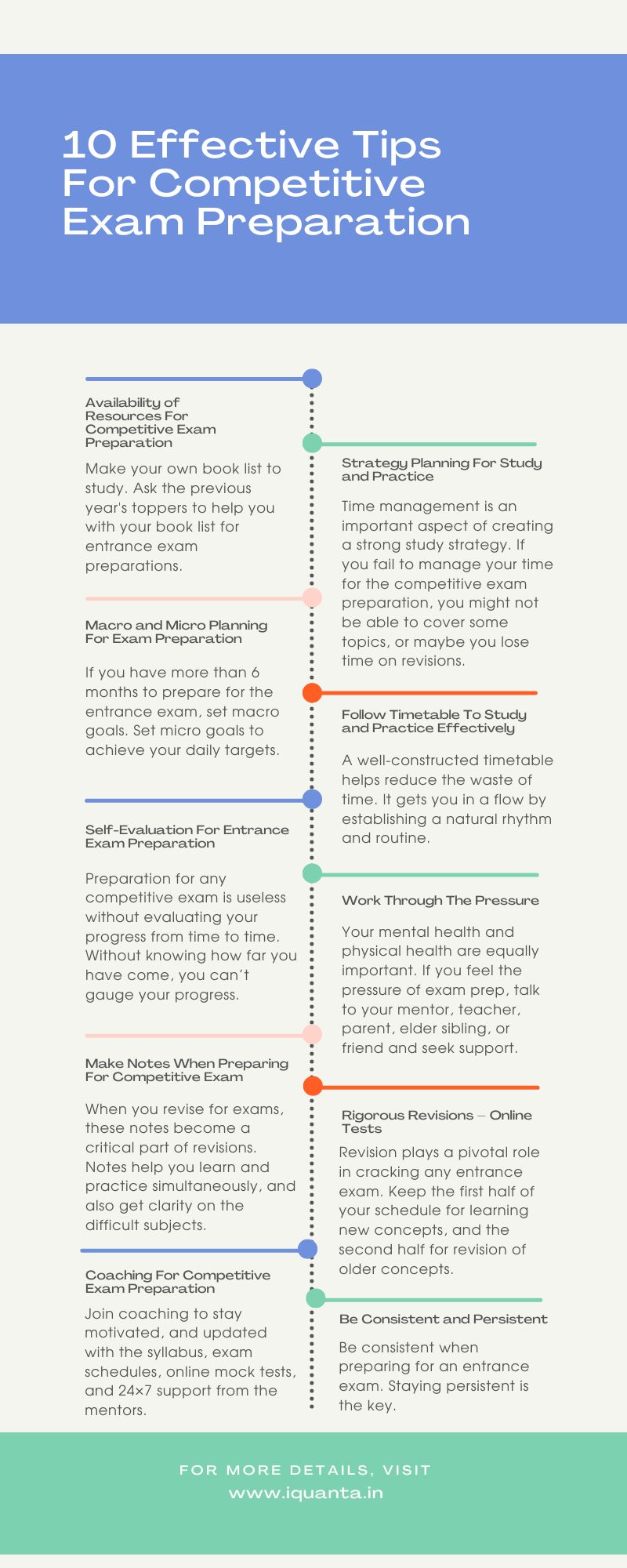Preparing for Competitive Exams: A Guide on the Effective Study Approach
Observing Classes and Avoiding Overcomplication
The first step in preparing effectively for competitive exams like BSc, JAM, JEST and TIFR is to observe your classes actively but avoid overcomplicating the concepts you learn. As many teachers tend to follow textbooks and cover syllabi comprehensively, making the most of classroom learning helps gain conceptual clarity. However, it’s important not to make simple topics seem complex unnecessarily. Focus on understanding principles fundamentally rather than getting lost in unnecessary details.

Reviewing Previous Year Papers
Another crucial aspect is thoroughly reviewing previous year question papers as they offer valuable insights into exam pattern and recurring topics. Most entrance exams tests core concepts repeatedly through their old questions. Therefore, analysing past papers highlighting their question types and popular topics allows identifying high-yield areas to focus study on. It also familiarizes one with the exam format, aiding time management. Make sure to minimize rough work and practice answering under timed conditions for accurate self-evaluation.
Observing Over Studying Daily
While regular studying ensures continuous revision, it’s not necessary to force oneself to study daily. As observing classes itself aids retention, one can study intensively only 2-3 times a week depending on personal learning style. The key is to make the most of class time by concentrated listening and note-making instead of cramming constantly. Reviewing periodically but avoiding burnout through a balanced routine works best. Regular observation during lectures itself replaces the need for daily studies for many.
Maintaining Discipline Through Self-Effort
Ultimately, success depends majorly on one’s self-effort and discipline rather than following any fixed preparation pattern. Keeping distractions at bay and dedicating stipulated timely slots regularly ensures consistent progress. Developing a positive attitude and treat exams as opportunities to demonstrate knowledge rather than fear and pressure also motivates sustained preparation. Maintaining composure during tests through effective past paper practice, relaxation techniques and believing in one’s capabilities leads to optimized performance.
Identifying Strengths and Weak Areas
Half the battle is won by self-assessment - identifying personal strengths and areas needing improvement. Take a sample test initially without preparation to recognize relative comfort with topics. Know weaknesses to prioritize for focused learning. Revisit strengtheners briefly. This self-evaluation aids devising an individualized study plan, optimizing the limited time available. Regular self-tests keep track of progress and highlight gaps requiring additional work.
Learning Actively Through Examples and Practice
Merely reading textbooks and notes proves insufficient. To truly understand concepts requires relating them to real examples, case-studies, simulations etc. This active learning aids retention far better. Solve plenty of questions covering easy examples to toughest ones. Analyze where thinking went wrong to avoid similar errors. Practice enhances one’s ability to recall and apply learnings under pressure. Try explaining topics to peers to test teaching skills as well, strengthening comprehension.
Maintaining a Healthy Lifestyle
No preparation can succeed without looking after oneself holistically. Keeping physically fit and mentally relaxed is equally important. Exercise daily, get adequate sleep and take study breaks every 90 minutes to re-energize. Eat nutrition-rich breakfast, carry fruits and stay hydrated. Practice meditation, yoga or hobbies to offset stress. A balanced lifestyle makes one’s mind sharper and body stronger to take on challenges.
So in summary, success in competitive exams is achievable by focusing on key concepts from classes, thoroughly reviewing previous year papers, identifying areas of improvement, learning actively through examples, maintaining self-discipline and healthy habits alongside an optimized preparation plan tailored to individual needs and strengths. Consistent yet balanced effort over time leads to optimized performance.
